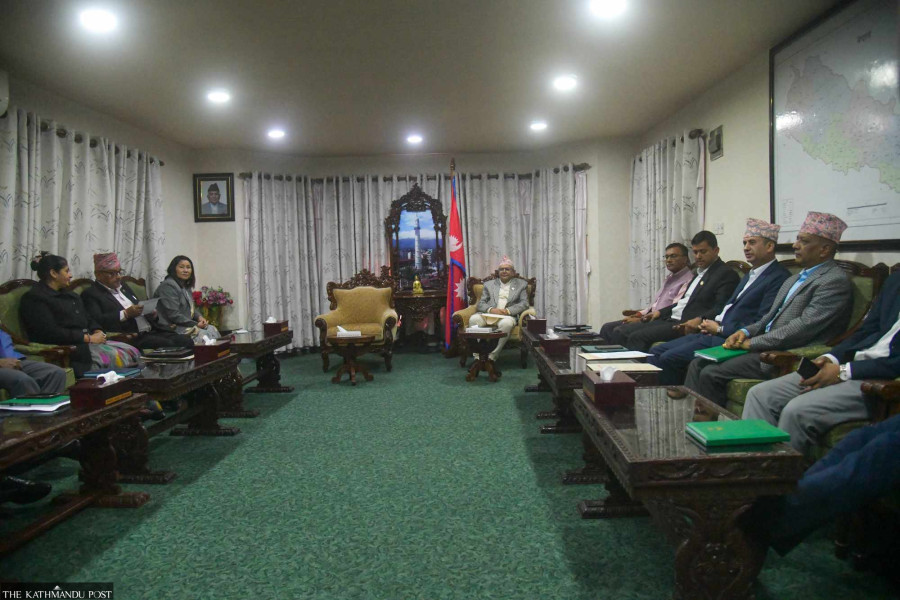National
Speaker asks parties to ensure House’s winter session has no dearth of business
He asks chairs of different House committees to hold regular meetings and finalise the pending bills.
Post Report
Due to a lack of business, the federal parliament's budget session was prorogued on September 17, weeks before the festive season began.
President Ramchandra Paudel, on the government’s recommendation, prorogued the session as the House meetings were largely confined to zero hours and special hours due to the lack of bills for discussion.
Fearing that the same situation could repeat in the winter session, Speaker Devraj Ghimire, on Tuesday, asked chairpersons of different House committees to hold regular meetings and finalise the pending bills.
The House committees, which are supposed to be active even when the parliament is not in session, have been dormant ever since the festive season started. Not a single committee in the lower house has held its meetings even after a week since the Dashain holidays are over.
“The Speaker called the meeting of House committee chairpersons and the chief whips of major parties to urge them to expedite the discussions over the pending bills,” said Shekhar Adhikari, press advisor to the Speaker. “He wants to ensure there is no dearth of business in the upcoming session.”
During the meeting, the House committee chairpersons had complained that they are unable to commence the meetings as lawmakers have not returned from their constituencies. Ghimire urged the chief whips to ensure the House committees don’t become dormant because lawmakers don’t show up.
“The Speaker inquired about the number of bills under each committee and asked how long it would take to finalise them,” said Abdul Khan, chairperson of the Industries and Commerce Committee. “He has asked us to forward all the bills in the full House before the winter session begins.”
However, it is still not clear when the new session begins. The President summons the parliamentary session on the government’s recommendation. There cannot be more than a six-month gap between the two House sessions. As the budget session was prorogued on September 17, the winter session must be called by March 16. The previous winter session was called in February.
Generally, winter sessions are called in December.
According to the records of the Parliament Secretariat, five House committees are sitting on 15 different bills, some of which are necessary for the full-fledged implementation of federalism. “These bills are under consideration in five committees,” said Ek Ram Giri, spokesperson at the secretariat.
Five bills are under consideration in the Finance Committee, while the State Affairs and Good Governance Committee has four bills to decide on. Similarly, the Infrastructure Development Committee; Education, Health and Information Committee; and Law, Justice and Human Rights Committee also have at least one bill to discuss and finalise.
“We are committed to expediting discussions. Our target is to make sure the winter session is full of business,” said Santosh Chalise, chairperson of the finance committee. Any bill finalised by the mini-House needs to go through both chambers of the federal parliament to become a law.
In the budget session, the lower house endorsed five bills, including a long-pending amendment bill to the transitional justice Act, in addition to the budget-related bills. As many as 56 meetings of the lower house were held in 53 days, and the session continued for 130 days. In addition to eight governmental bills, one non-governmental bill was also registered in the House during the session.
A study report by the Legislation Management Committee of the National Assembly last year found that only 111 of the 151 laws needed to implement the constitution promulgated by the Constituent Assembly in 2015 have so far been enacted. Still, 40 Acts need either major amendments or replacement with new ones to sync them with the statute, according to the study.




 16.12°C Kathmandu
16.12°C Kathmandu













